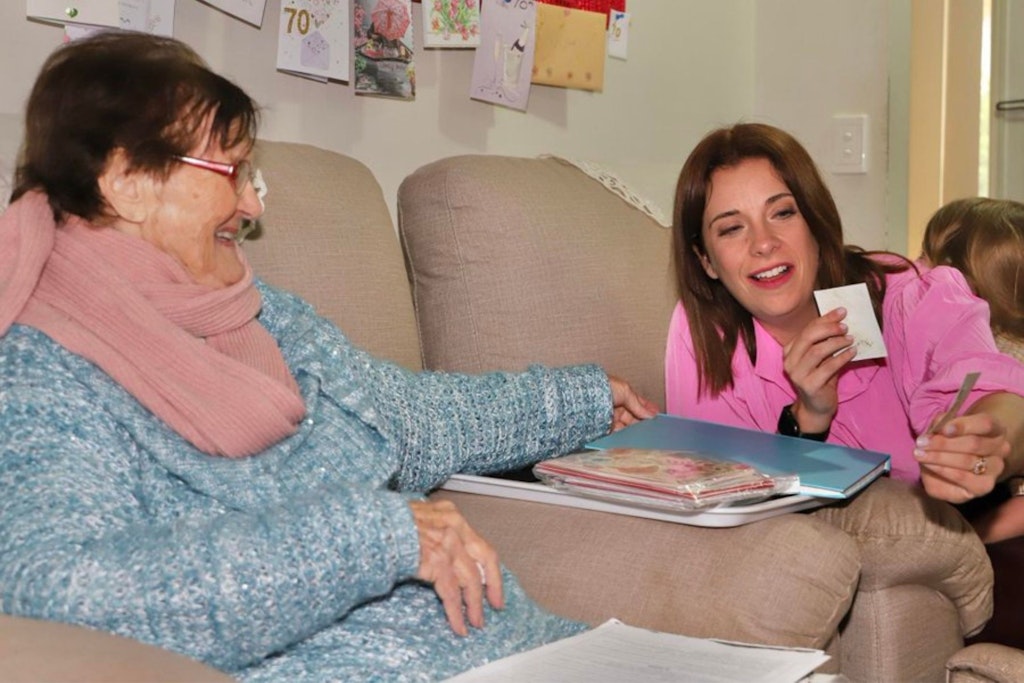Aged care innovation and improvement spur Government investments
Published on 17 May 2023 (Last updated on 6 June 2023)

With one eye on the future, the Federal Government has reinforced existing commitments to the aged care sector this week as the Aged Care Minister and the Interim Inspector-General of Aged Care provided key updates for the aged care sector at the Aged Care Research & Industry Innovation Australia (ARIIA) Facing the Future: Aged Care 2030 and Beyond conference.
Minister Anika Wells, who appeared via a video link at the Adelaide conference, mentioned the benefits of the 2023 Federal Budget and focused on the importance of the $34 million in funding for ARIIA that’s spread across three years.
“With this investment, ARIIA has hit the ground running, funding innovative translation research projects that support increased workforce capacity and capability and have the potential to change the landscape of aged care,” Minister Wells said.
“We have just delivered a Budget that sees $36 billion invested into aged care including a historic $11.3 billion to fund a deserved 15% increase on the award wage. This investment means a nurse can earn an extra $10,000 a year in aged care while a personal care worker can earn an extra $7,000 a year.”
Those investments are necessary as Minister Wells provided a timely reminder that the baby boomer generation (born between 1946-64) is surging towards the aged care system. By 2030, the youngest baby boomers will be 65.
Coupled with an increased push toward ageing at home, Minister Wells said there’s no time to waste in putting innovative ideas into practice.
“Together, we all need to address the emerging changes in how people age and ask ourselves, what does healthy ageing look like? What does aged care look like in the future?” she said.
“Innovative ideas and solutions will support the Government and the sector to co-design positive ageing approaches so older people can live meaningful lives and safe, high-quality aged care is available when needed.”
Minister Wells added that both she and the Government are committed to fostering innovation to create a more agile and needs-based service through a number of recently announced initiatives.
Key Government initiatives
- An Aged Care Taskforce assessing funding models to better deliver best-practice innovation and sustainability
- New framework for aged care regulation as part of the new rights-based Aged Care Act
- Increased support for digital transformation and improved IT systems to streamline self-reporting data including the Government Provider Management System (GPMS)
Interim Inspector-General outlines responsibilities
As part of the Government’s attempt to strengthen the aged care sector, it announced the introduction of the Inspector-General of Aged Care last year. It will be the first Office of Inspector-General within the Government’s human services sector, and it will have the power and authority to independently monitor and report on systemic issues such as waste, fraud and abuse.
The Department of Health and Aged Care, the Aged Care Quality and Safety Commission and Government ministers will not be able to interfere with or control what is investigated and reported on. All reports completed by the Inspector-General of Aged Care will be presented to Parliament and they will be publicly available for full transparency.
Mr Ian Yates, who holds the interim title of Inspector-General until the Bill is passed in Parliament in June, said this is an important opportunity to stand up and drive continuous improvement within Government aged care services.
“We believe that the opportunity is there for the Inspector-General of Aged Care to have a real impact in facilitating transformative change over time in the sector, in partnership with other players, in partnership with the bodies that we oversee,” Mr Yates said.
“We are about attacking long-term issues and long-term lost opportunities in this sector. We are not out to have big gotcha moments with the Department or the Commission. We’re focused on how they can do their jobs better so the outcomes being achieved for older Australians and their families are better.”
“We clearly need to know what’s going on. We will have very strong powers under our act to [collect information] out of the Department, the Commission, the pricing authority and anybody who is regulated, administered or funded by the Government in terms of aged care.”
Providers can expect the early focus of the Office to include direct experiences in aged care, including those of management, staff, residents and families. Mr Yates said information will not only be collected through data but through “deeper conversations” to help interpret data.
“We will be analysing all the data. We will be thinking about how we use it to shape the next step, the reviews which will be a major in-depth drilling down of a systemic issue in aged care,” he said. “Some issues the system will have struggled with for years and not resolved, while some might affect a particular cohort of people.”
Mr Yates said one of the first reports that will be completed will provide an update on the implementation of Royal Commission into Aged Care Quality and Safety recommendations.
Aged care providers and industry stakeholders were invited to share ideas and information with the Office to assist with the identification of top priorities.
If you have any information or questions, email [email protected].